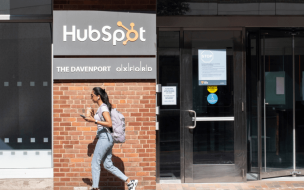As their career ambitions widen, MBAs at the likes of Tuck, Tepper, Cass, IESE and HEC Paris have flocked to the Bay Area in great numbers. Among the giants throwing doors open to them are Google, Intel and Facebook.
“It’s an amazing opportunity,” says Sandra Richez, head of career services at EDHEC Business School, whose MBAs met execs at Crosslink Capital and Apple.
But amid the Bay Area beasts are a handful of start-ups hoping to hire talent to help them scale fast, or die trying.
MBAs are looking at Silicon Valley start-ups and wondering how they can make an impact and potential riches. “They want to check it out, to see what it is like working in smaller companies,” says Maeve Richard, careers director at Stanford Graduate School of Business.
Start-ups are raising record investment and some are competing with the likes of Amazon, Salesforce and Dell to recruit business schools’ brightest. “We’ve hired many people from Stanford,” says Daniel Macklin, co-founder at SoFi, Silicon Valley’s $4 billion fintech company.
SoFi is an example of the fast-growth Bay Area tech businesses that are snapping up business students from all over. It is disrupting the banks with online student loans, approaching $5 billion in loans funded and on track for a potential IPO.
“Employees in Silicon Valley are used to working at new and unproven companies,” Daniel says.
Working at a start-up can be a challenge for MBAs, who are forking out tens of thousands and absorbing lost earnings for months on end to attend a top program. But they see the appeal.
“There is no question that the rate of MBA students seeking internships in start-ups is increasing,” says Ted Zoller, director for the Centre for Entrepreneurial Studies at UNC Kenan-Flagler Business School. Lara Berkowitz, executive director for the Career Centre at London Business School, says start-ups offer MBAs the opportunity for more responsibility compared to big firms: “It gives you more impact [and] better access to leadership.”
The biggest increase in opportunity from start-ups has come in the form of internships. “The internship is a low risk way to learn if the start-up culture is truly for them, since it is definitely not for everyone,” says Vincent Ponzo, director of the Eugene Lang Entrepreneurship Centre at Columbia Business School.

Tech firms big and small have been among the biggest lures for MBAs. “There is significant interest on the part of the first year MBAs in technology,” says Susan Kline, co-director of the Career Development Center at MIT Sloan School of Management.
The prospect of a start-up striking gold is particularly attractive to MBAs. In Silicon Valley, valuations are in the extreme. But with smaller budgets than large players, start-ups are disadvantaged. “Silicon Valley is as expensive as they say, in terms of real estate, the talent, and the snacks and free lunch required to recruit,” says Frederic Kerrest, COO of Okta, a San Francisco cloud business valued at $1.2 billion.
Aside from the pay, what is most important to start-ups when they hire is cultural fit. The difference between office life at a Wall Street bank and Bay Area minnow can be stark. “Liking the people who are around you really counts,” says Caroline Daniels, senior lecturer in entrepreneurship at Babson College.
While many Silicon Valley darlings have grown to become “unicorns” — companies valued at or above a billion dollars, one in three start-ups will flop. MBAs must live with the volatility.
Julia Min Hwang, assistant dean of career management at Berkeley’s Haas School of Business, points out that this is par for the course in San Francisco.
“The Silicon Valley culture was built on innovating, trying, failing [and] moving on quickly,” she says, before adding: “And hopefully eventually succeeding.”
RECAPTHA :
70
18
cb
3e








